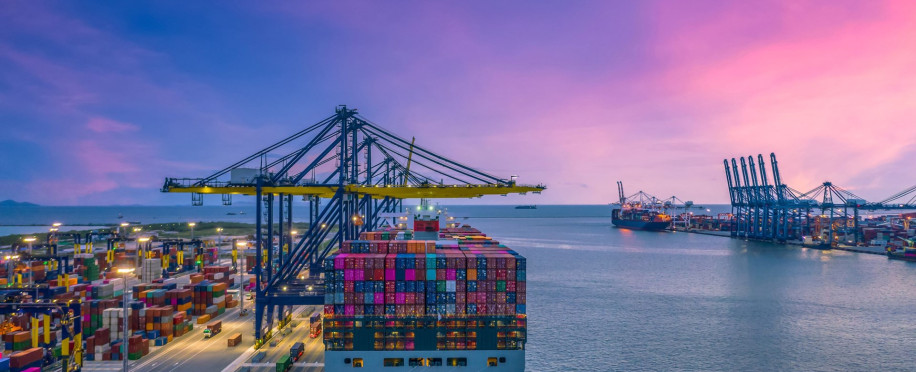Copyright © 2026 lmitac.com All Rights Reserved. Contact - Terms and Conditions - Privacy Policy - Quality Policy - Become an instructor - Vacancies - Sitemap
London Maritime Academy is a trade name for London Premier Groupversion: 2.9.0
London Maritime Academy is a trade name for London Premier Group

Posted on : 10/29/2023, 11:46:02 PM
Last Update : 10/29/2023, 11:48:37 PM
The maritime industry controls more than 80% of international shipping and trade; thus, the blueprint of marine commerce is essential to guarantee the success and security of this trade process.
More than that, maritime commerce is considered one of the most efficient international trading techniques that follow the law and come with positive economic impacts.
In this article, we will discuss strategic maritime commerce, its importance, and the primary stages based on the International Chamber of Commerce in the marine sector.
Maritime commerce, also known as naval trade, is transporting goods and cargo from one port to another, despite its volume and weight, through national and international waterways on vessels and ships.
We can say that maritime commerce can be effective and drive critical development and prosperity to the economy by following global marine law and commerce recommendations.
The Journal of Maritime Law and Commerce, focus on the preservation of the ocean's future and resources by promoting the relating admiralty current events and legal news to the investment community.
Sure, you are wondering why maritime commerce is getting all the fuzz in the transportation industry. Thus, let us share with you some of its excellent benefits:
Increase trade framework efficiency and improve its general outcomes.
Lower the trade costs due to mass and bulk transportation possibilities; even if we are talking about freight from the north to the south, your transportation commission will be lower with maritime commerce.
Drive economic growth to ports and terminals with all the conducted water commerce processes.
Enable professional global transportation of goods through international waterways, seas, and oceans.
Create great annual job opportunities for people within the maritime industry.
Connect each nation with other economies and share economic advantages worldwide.
When following the suitable and professional maritime commercial practices training courses, you will learn about these cited steps, that turn all published maritime commerce strategies into successful ones:

So, the main reason behind running the maritime commerce process is to transport a business's cargoes and goods from one port to another.
Thus, the loading and unloading of goods from warehouses to containers to vessels is a basic step that ensures product safety and shipping process success.
Due to the large price of ships and required tools, the domestic merchant will not consider investing in their purchases.
Therefore, as a part of the maritime commerce process you need to book and reserve the freight for your cargoes, this is considered a space booking, and its cost varies depending on the distance expansion, ship size, and product amount.
The main point of marine commerce is where shipping companies transport the goods through sea from one port to another.
Moreover, many vessel types provide the best conditions and security to protect your shipped products and their reservation conditions.
We can say that maritime commerce processes and operations take place in mainly two locations which are vessels and ports. Thus, taking care of the port operations is essential to guarantee success even in the busiest ones.
Furthermore, investing in upgrading all the used tools and software, and training your team is not only required by the maritime association laws but also a key point in your growth, moreover, so you can represent inextricably the required support for all naval aspects.
Also known as containerisation, is the strategy of packing your shipped goods in containers and then loading and unloading them from vessels.
Using containers basically aims to simplify the process of shipping and transporting between tracks, ships, and warehouses, moreover, promotes a high-level secure process on all linked and substantial work.
Is the act of overseeing the entire process to guarantee that maritime transport follows law regulation, and implements the best maritime commerce security plan.
This act is done by professional agencies to ensure clarity and full transparency with clients based on each location's devoted federal rules.
So, as we noticed maritime commerce includes many components and requires different conditions to succeed.
Therefore, providing and managing the available logistics is vital to lower cost, meet timeline, and improve productivity in each step of the maritime transport plan.
Although maritime commerce is only one department in a large and global industry, yet, it has a greater impact on the marine industry than you can imagine.
Therefore, consider implementing the best practices by your team to reach the results you need.